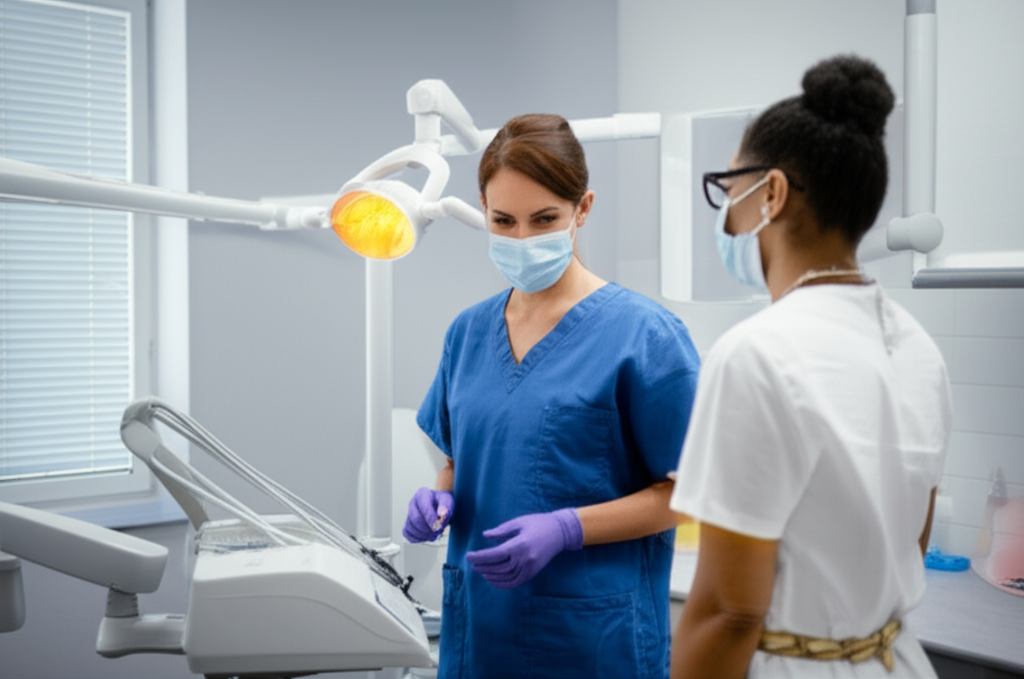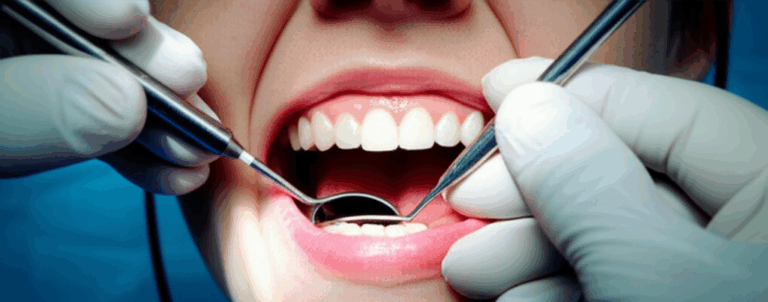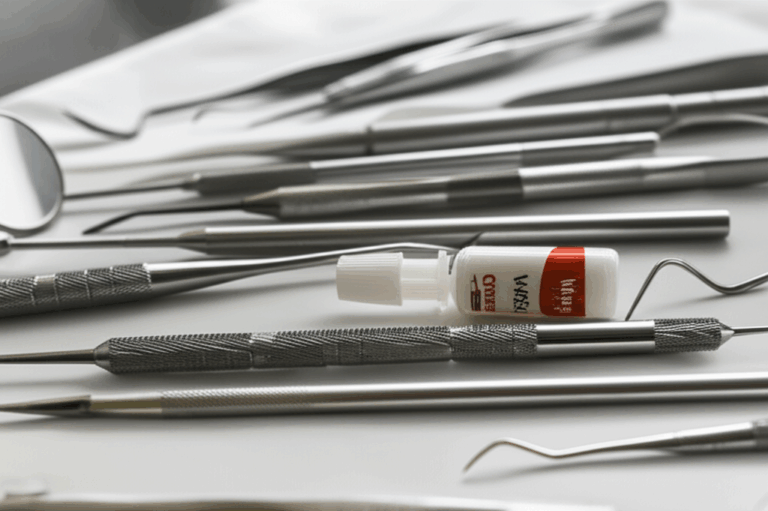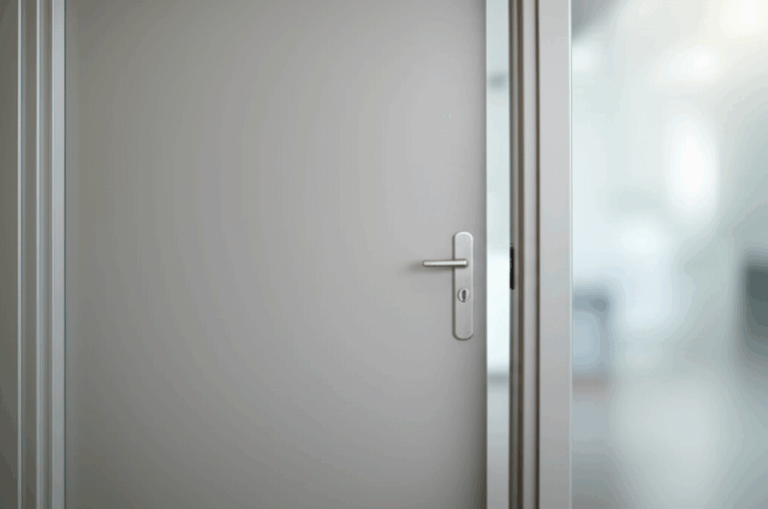
Can a Dental Hygienist Become a Dentist? Your Complete Career Path Guide
Ever wondered if a dental hygienist can become a dentist? If you’re thinking about changing your job from cleaning teeth to fixing them, you’re in the right place. In this post, I’ll take you step by step through what you’ll need to do, how long it will take, what it will cost, and what makes the journey both tough and exciting. This guide is here for anyone exploring bigger dreams in the dental world—so buckle up and let’s get started!
Table of Contents
Introduction: Can a Dental Hygienist Become a Dentist?
Let’s get this out there right away—yes, you can become a dentist if you are a dental hygienist. But, it isn’t just the next job up the ladder. You’ll need to go back to school, take tough science classes, pass big exams, and spend more years learning.
Why do some hygienists want this? Well, dentists find out what’s wrong, make a plan, and manage the dental team while hygienists mostly clean teeth and help people avoid dental problems. Being a dentist means more jobs to do, more money, and more ways you can take your career. But is it right for you? That’s what I’ll help you figure out.
What Makes a Dental Hygienist Different from a Dentist?
Some people think dental hygienists and dentists do the same thing. That’s not true! Let’s look at how these jobs are different.
What Does a Dental Hygienist Do?
- Works on preventing problems: Cleaning teeth, getting rid of plaque, giving patients tips on how to keep their teeth healthy.
- Takes X-rays: Hygienists can take and process dental X-rays.
- Puts on fluoride and sealants: In many places, hygienists can also put fluoride or sealants on teeth.
- Can numb small areas: Some states allow hygienists to numb part of the mouth for some work.
- Education: Teaching people how to brush and floss right.
What Does a Dentist Do?
- Finds and treats problems: Dentists figure out what’s going on, make a plan, and tell patients what needs to be done.
- Fixes teeth: Fillings, crowns, bridges, veneers, and more.
- Surgery: Pulling teeth, doing root canals, placing implants.
- Gives medicine: Dentists give things like antibiotics and pain pills.
- Leads the team: Dentists are the boss of hygienists, assistants, and lab workers.
- Run a practice: Many dentists own and run their own dental office.
As you can see, the dentist’s job is much bigger. Dentists use their hands and minds to fix big dental problems—great for people who like leading and making a big difference.
Is There a Pathway from Dental Hygiene to Dentistry?
You might be thinking, “Do I get a shortcut since I already work with teeth?”
Here’s the Short Version
- You CAN’T just move up from dental hygienist to dentist like a regular job change.
- Every dentist needs a doctorate: either Doctor of Dental Surgery (DDS) or Doctor of Dental Medicine (DMD).
- If you’re already a hygienist, you can use your background to help with some courses and experience, but you still need a lot more training.
Why Would a Hygienist Want to Become a Dentist?
Many hygienists want to be dentists because:
- Better pay
- More freedom
- More kinds of dental work
- Chance to be a leader
If this sounds good to you, keep reading. We’ll show you how it works.
What Courses and Tests Do You Need?
So, you’ve decided you want to learn more than just cleaning teeth. What’s next?
Step 1: Check Your Education
Most hygiene programs give you an Associate’s degree (2-3 years) or sometimes a Bachelor’s (4 years). Dentists, though, need a Bachelor’s degree with lots of science classes.
The classes you need:
- Biology
- General Chemistry
- Organic Chemistry
- Physics
- Anatomy & Physiology
- Microbiology
- Biochemistry
- Math and English
If you didn’t take these, you’ll have to finish them before applying to dental school.
Step 2: Dental Admissions Test (DAT)
Every future dentist must take the Dental Admissions Test (DAT). This test checks your science knowledge and thinking skills.
How can you get ready?
- Take time and study hard—especially if you haven’t done a big test for a while.
- Many hygienists think this test is one of the hardest parts because it’s been a long time since school.
- There are DAT prep books, online classes, and study groups to help.
What’s Dental School Like for Hygienists?
Here’s what dental school life is really like—especially when you’ve already worked as a hygienist.
Getting In
It’s tough to get into dental school. The American Dental Education Association (ADEA) says only about half of the people who try, get in. But working as a hygienist helps—you already prove you care about dental care.
- You’ll need to write a statement explaining why you want to be a dentist.
- Get letters from dentists or teachers who know you.
- Watch dentists work (shadowing) to learn more. Volunteering also helps.
In the Classroom
Dental school takes four years after you’ve finished your science pre-requirements. You’ll learn:
- Anatomy (lots of teeth and bones)
- Biochemistry
- Clinical practice (treating real patients but with help)
- Harder dental procedures
Little story: When I went from being a hygienist to a dental student, sitting in class felt weird. But knowing how to talk to patients helped me feel better in the clinic.
Board Exams and Graduation
- You have to pass the National Board Dental Examination (NBDE or INBDE).
- Most states want you to take a real-life clinic exam too.
- After that, you get your license—now you’re a real dentist!
How Much Time and Money Does It Take?
This is where it gets serious. Becoming a dentist is a big job—in both time and cost.
Timeline Table
| Step | Years |
|---|---|
| Missing science classes | 1-2 |
| Bachelor’s degree (if needed) | 2-4 |
| DAT prep and application | 0.5-1 |
| Dental school (DDS/DMD) | 4 |
| Optional residency | 1-2 |
So, becoming a dentist from scratch can take 6-9 years (or even longer) if you count every part.
Cost
- Dental school can cost over $300,000 in the United States, says the ADEA.
- You’ll also pay for books, tools, and living costs.
- Don’t forget—if you stop your hygiene job, there’s less money for a while.
- Most people need student loans; sometimes there’s help from scholarships or aid.
How Much Do Dentists Make Compared to Hygienists?
Now, the numbers—why do so many people make this big change?
Side-by-Side Comparison Table
| Occupation | Average Yearly Pay (USA, 2022) |
|---|---|
| Dental Hygienist | $87,530 |
| General Dentist | $163,220 |
Dentists make almost double what dental hygienists make, on average. If you own your own office or do a special job (like oral surgery or braces), you can get even more.
Still, it takes a lot of time before the dentist paycheck pays back your school bills, so you need to plan.
What Are the Biggest Challenges?
I won’t make it sound too easy—the road from hygienist to dentist is full of big bumps. Here’s what to think about.
Time
Dental school is long, and that’s only if you already have your Bachelor’s and all your science credits. Lots of hygienists have families or kids by this time, so going back to school is tough.
Money
It can feel scary to quit a job that pays well and go back to school. Student loans can really add up, and life on a student budget is hard.
School Work
Dental school is hard. You’ll study things that don’t feel much like hygiene, and you’ll be around students who’ve been getting ready for this for years.
Personal Life
You’ll miss dinners, family time, even sleep, just trying to keep up. But lots of people like you have finished, and you can too.
One Good Thing: Your Hygiene Experience
Here’s good news—hygienists are used to dealing with patients and working in a dental office, so they’re often more comfortable in the clinic than students fresh out of college.
Are There Alternatives to Becoming a Dentist?
If dental school’s big time and money investment isn’t for you, there’s other ways to move up in your career.
Degrees in Dental Hygiene
Many colleges offer a Master’s degree in Dental Hygiene. With this, you can teach, work in public health, or do dental research.
Working at a Higher Level
Some states let skilled hygienists:
- Numb parts of the mouth
- Put in temporary fillings
- Work more in kids’ clinics or public health offices
Jobs Outside the Chair
It’s not all about working with patients. You can work in:
- Dental product sales or at a digital dental lab
- Practice management
- Marketing and consulting
If you like teeth but want something different, many doors are open to you.
Conclusion: Should You Make the Switch?
Deciding if you should go from dental hygienist to dentist isn’t all about the paycheck or a job title. You’ll need drive, a lot of patience, and an open mind to start learning again from square one.
Ask yourself:
- Am I ready to go back to class and study hard?
- Can I handle living on less money for a while?
- Do I want to take on lots more at work?
- Is it worth the time away from family and the big effort?
If you say “yes” to most of these, maybe dental school is for you. If not, look for higher jobs in hygiene, get into research or sales, or try creative work with a china dental lab or as a dental consultant. The dental world is wide open—make your own journey.
Key Takeaways
- Dental hygienists can become dentists but must earn a DDS or DMD.
- You need more science classes and must pass the DAT.
- Dental school takes four years and costs a lot.
- Dentists have more duties, can earn more, and have more leadership jobs.
- Think carefully about your motives, money, and family before you jump in.
- If you want to stay in hygiene, there are ways to move up.
- Use your current experience to stand out when you apply to dental school.
- Explore jobs in labs like a removable denture lab or marketing.
Problem: Dental hygienists want more responsibility, freedom, and money, but face confusing and costly steps to become a dentist.
Agitate: The needed years in school, hard science classes, huge price tag, and time away from a steady job can seem too much—and might make you wonder if it’s worth it.
Solution: This guide gives you facts, steps, and simple tips to help you pick what’s best for your life and job. Look into all your options—whether that means dental school, moving up in hygiene, or working with a top dental lab—and make your own bright path in dentistry.
References
- American Dental Association (ADA)
- American Dental Hygienists’ Association (ADHA)
- American Dental Education Association (ADEA)
- Bureau of Labor Statistics (BLS)
- Dental school program websites
Frequently Asked Questions
Q: Can I use my experience as a hygienist to skip parts of dental school?
A: No, all dentists must finish the full dental school program. But your hygiene work can help you in class and clinic.
Q: Is dental school harder for older students or those coming back after working?
A: It takes some getting used to, but lots of older students do well. Strong drive is your best friend.
Q: Will I make more money as a dentist?
A: Yes, but be sure to think about the cost of school and the years where you might earn less.
Q: Are there dental schools that have special programs for hygienists?
A: Some schools offer bridge or advanced standing programs, but most want you to go through the regular dental school route.
Ready to explore your future in dentistry? Whatever you pick, make sure it matches your dreams and life. Good luck!








